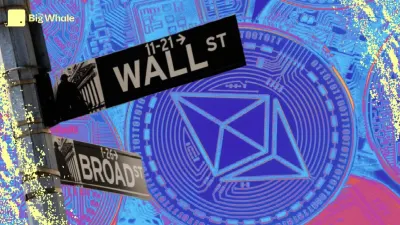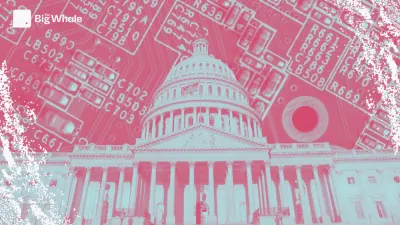As we enter the 21st century, the digital revolution is redefining the contours of global finance at breakneck speed. We are seeing the meteoric emergence of on-chain (blockchain-based) finance, which has major implications for the financial sector.
July 1 marked a crucial first step for stablecoin issuers with the partial entry into force of the European MiCA regulation . Players who, like the American giant Circle (a client of De Gaulle Fleurance, among others), can from this date issue their stablecoins (USDC and EURC) and benefit from a decisive competitive advantage since only these regulated stablecoins can now be traded in compliance with European regulations and throughout Europe thanks to the European passport.
The MiCA regulation, which will also come into force on 30 December 2024 for the specific supervision of crypto-asset service providers, extends the supervision of PSANs by also allowing them to offer their services throughout Europe thanks to the passport. This regulatory framework, designed to encourage innovation and its maintenance in the 27 member countries while protecting investors, guarantees the legal certainty necessary for the development of players who agree to comply with the regulations.
This world-first regulatory framework gives an advantage to European players, who should seize it while the United States, in particular, struggles to find the way to similar regulations. It should also transform the landscape, consolidating the market as some players are unable to comply with this demanding framework.
Two worlds coming together Another striking trend is the convergence of the world of digital assets and traditional finance, which seems to me to be inevitable. On the one hand, we are seeing a growing incursion by blockchain players into traditional finance, with companies like Circle actively exploring the synergies between these two worlds.
Circle, the first stablecoin issuer to operate from Europe thanks to its Electronic Money Institution (EME) licence, is benefiting from these new regulations, which extend its ability to offer secure digital financial services that comply with European standards. The major platforms for exchanging digital assets have considerable resources at their disposal to conquer new markets and declare that they want to offer their customers the full range of assets and extend this to financial instruments.
This is already taking shape in digital asset management, where players are applying for authorisation as financial asset portfolio management companies, while management companies are developing their digital asset offering or tokenising units in money market funds. This movement is also evident in the inevitable development of ETFs, as we have seen in recent months in the United States.
On the other side, banking institutions are gradually embracing this revolution and exploring the possibilities offered by blockchain to promote innovation and remain competitive on a global scale.
The European "Pilot Regime" regulation proposed by France and applicable from March 2023, specifically to promote the development of blockchain in the world of finance and banking, is the only legal tool today enabling the establishment of a security token offering and a genuine secondary market in this area.
It is therefore a tool that French and European players should seize upon as quickly as possible, given the extent to which the tokenisation of financial instruments seems set to become the norm in the future.
France, with its single legal framework adopted from 2019 with the PACTE Act , has been at the forefront of financial innovation. Designed to safeguard innovation while guaranteeing investor security and market stability, this framework has been a key catalyst for the adoption of blockchain technologies in the country. Now, with Europe-wide regulatory harmonisation, we have an unprecedented opportunity to further strengthen this leadership position with our talents.
It is imperative that we collectively seize this opportunity. By working closely with regulators, businesses and market participants, we can build an ecosystem where innovation and compliance go hand in hand, paving the way for a new era in global finance.
VIDEO
Heading 1 Heading 2 Heading 3 Heading 4 Heading 5 Heading 6 Lorem ipsum dolor sit amet, consectetur adipiscing elit, sed do eiusmod tempor incididunt ut labore et dolore magna aliqua. Ut enim ad minim veniam, quis nostrud exercitation ullamco laboris nisi ut aliquip ex ea commodo consequat. Duis aute irure dolor in reprehenderit in voluptate velit esse cillum dolore eu fugiat nulla pariatur.
Block quote Ordered list
Item 1 Item 2 Item 3 Unordered list
Text link
Bold text
Emphasis
Superscript
Subscript





